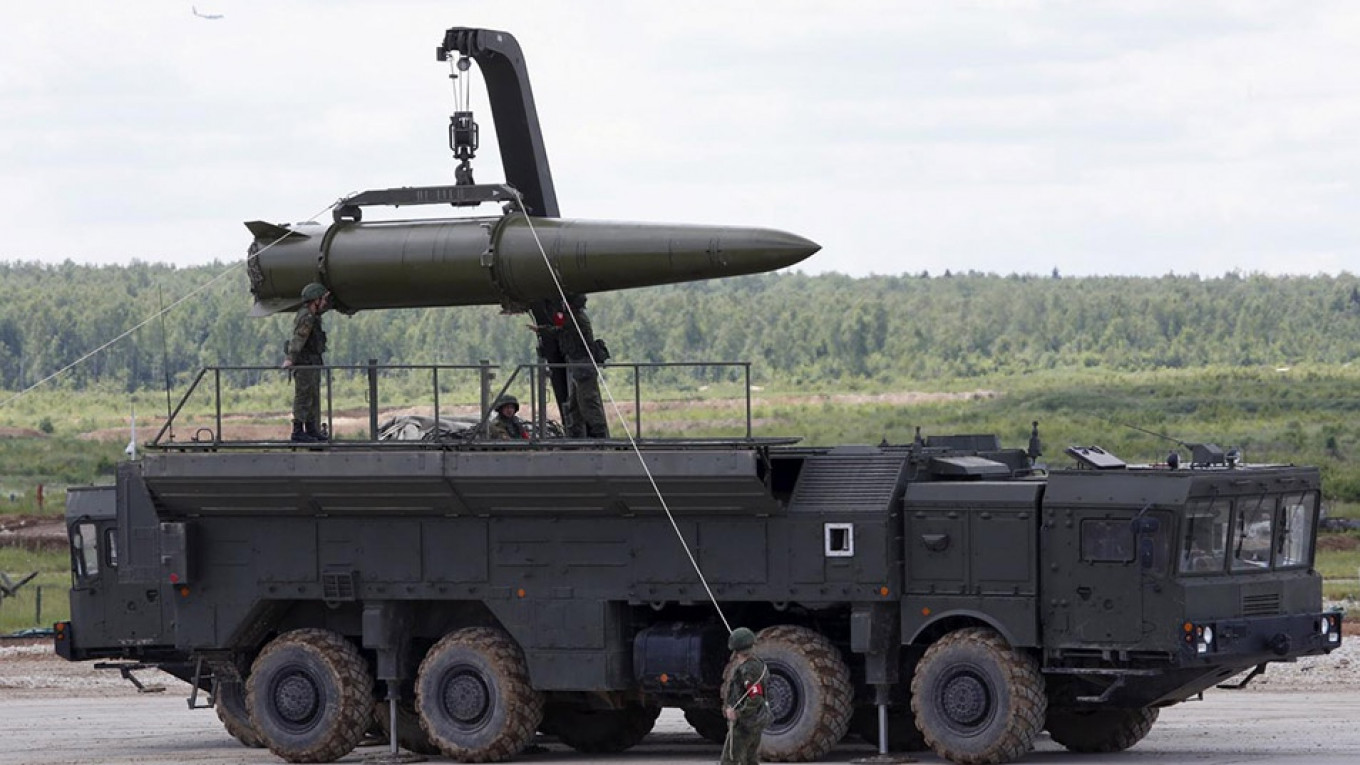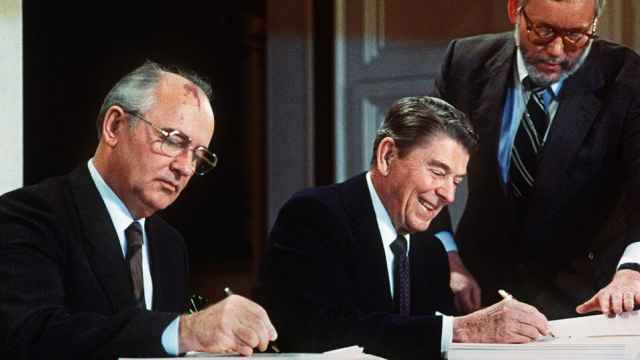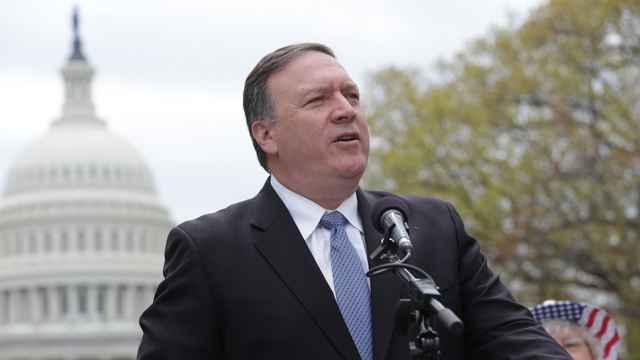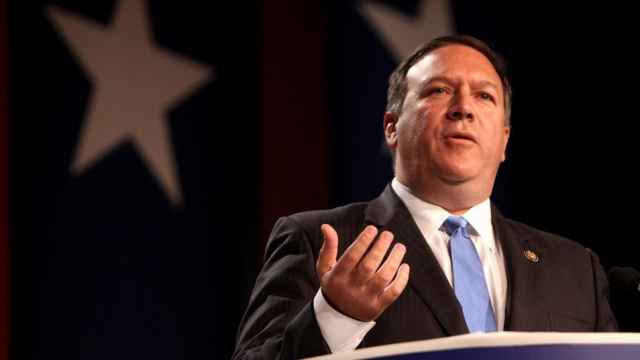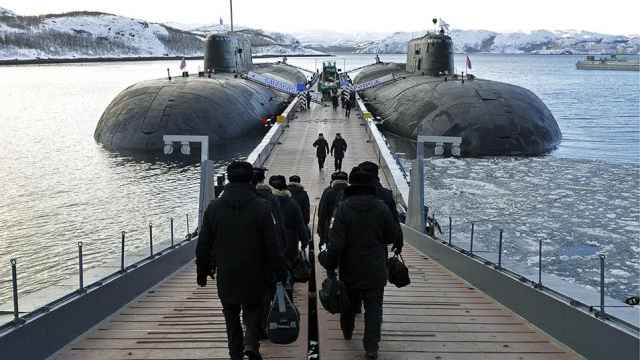Russia must scrap its 9M729 nuclear-capable cruise missiles and launchers or modify the weapons' range to return to compliance with a key Cold War-era arms control treaty and avert a U.S. pullout from the pact, a senior U.S. official said Thursday.
"Either you rid the system, rid the launcher or change the system where it doesn't exceed the range" in a verifiable manner, said U.S. Under Secretary of State for Arms Control and International Security Andrea Thompson.
On Tuesday, the United States announced it was giving Russia 60 days to end what Washington charges is the missiles' violation of the 1987 Intermediate-range Nuclear Forces Treaty, or it would begin to withdraw from the pact.
The possibility that the treaty might unravel alarms Washington's European allies, who fear its collapse would trigger a new U.S.-Russian nuclear weapons race with the danger that Europe itself could become a nuclear battleground.
U.S. Ambassador to Russia Jon Huntsman, who briefed reporters with Thompson, said that a U.S. withdrawal from the treaty "does not mean we are walking away from arms control."
"We remain committed to arms control, but we need a reliable partner and do not have one in Russia on INF or for that matter on other treaties that it’s violating," Huntsman said.
Sounding a similar theme on Thursday at a Washington Post event, the top U.S. military commander warned that Russia's continued breach of the INF pact could hamper extending the New START treaty, which limits U.S. and Russian offensive nuclear weapons deployments, beyond its Feb. 5, 2021, expiration.
"I will not obviously not make this decision. I’ll make recommendations," said Marine General Joseph Dunford, the chairman of the Joint Chiefs of Staff. "But it's very difficult for me to envision progress in extending [New START] . . . if the foundation of that is non-compliance with the INF Treaty."
Unless the sides agree on a five-year extension provided by the pact, New START's expiration will end all restrictions on their deployments of offensive nuclear weapons.
Moscow denies the missile, which U.S. officials say can hit European targets with nuclear or conventional warheads, violates the INF Treaty. Russian President Vladimir Putin on Wednesday warned that Russia would develop missiles banned by the accord if the United States exits the pact.
The United States and its European allies charge that what Moscow calls the 9M729 Novator cruise missile — designated the SSC-8 by the NATO Western security alliance — breaches the treaty's range limit of 500 to 5,000 kilometers.
The treaty also bans the production and testing of missiles with such ranges and their launchers.
President Donald Trump on Oct. 20 said the United States would withdraw from the treaty after what U.S. officials said were dozens of meetings since 2013 in which their Russian counterparts first denied the 9M729's existence and then said it complied with the pact.
NATO leaders on Tuesday unanimously supported the U.S. charge that Russia has been violating the treaty. But they prevailed on Secretary of State Mike Pompeo to give diplomacy another chance and allow Russia 60 days to return to compliance.
The treaty, negotiated by then-President Ronald Reagan and Soviet leader Mikhail Gorbachev and ratified by the U.S. Senate, eliminated the medium-range missile arsenals of the world's two biggest nuclear powers and reduced their ability to launch a nuclear strike at short notice.
A Message from The Moscow Times:
Dear readers,
We are facing unprecedented challenges. Russia's Prosecutor General's Office has designated The Moscow Times as an "undesirable" organization, criminalizing our work and putting our staff at risk of prosecution. This follows our earlier unjust labeling as a "foreign agent."
These actions are direct attempts to silence independent journalism in Russia. The authorities claim our work "discredits the decisions of the Russian leadership." We see things differently: we strive to provide accurate, unbiased reporting on Russia.
We, the journalists of The Moscow Times, refuse to be silenced. But to continue our work, we need your help.
Your support, no matter how small, makes a world of difference. If you can, please support us monthly starting from just $2. It's quick to set up, and every contribution makes a significant impact.
By supporting The Moscow Times, you're defending open, independent journalism in the face of repression. Thank you for standing with us.
Remind me later.


